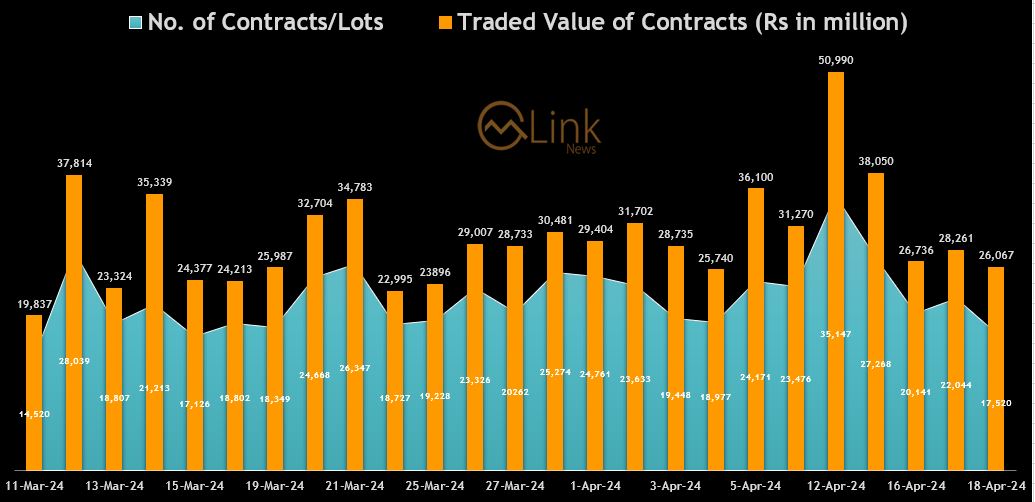As share prices for giants like Netflix and Amazon surge, it’s easy to feel priced out of the stock market. As of Aug. 3, a single share of Netflix would cost you $502.19; for Amazon, you’d pay $3,134.82 per...
As share prices for giants like Netflix and Amazon surge, it’s easy to feel priced out of the stock market. As of Aug. 3, a single share of Netflix would cost you $502.19; for Amazon, you’d pay $3,134.82 per share.
If you’re a beginning investor, the high prices may tempt you to seek out a bargain. Enter penny stocks.
Penny stocks seem like an opportunity to buy into an up-and-coming company for dirt cheap. You can buy hundreds or even thousands of shares for the price of an S&P 500 company share.
But watch out: Investing in penny stocks could easily leave you broke.
What Is a Penny Stock? Are Penny Stocks Worth It?
The U.S. Securities and Exchange Commission defines a penny stock as one that trades for $5 or less per share. Most investors, though, take a narrower definition. Many define it as one that trades for under $1.
But it isn’t just the low trading prices that define penny stocks.
You can find stocks trading for under $5 a share on major stock exchanges, like the Nasdaq or New York Stock Exchange (NYSE). But most investors don’t consider these to be penny stocks.
Penny stocks generally trade on the over-the-counter (OTC) market. The transaction takes place between the broker-dealers for the buyer and seller. They use the OTC market to name their prices. There’s no central exchange facilitating the trade, which can happen without anyone else knowing the transaction price.
The transaction may feel the same as it does when you invest in stocks listed on a major exchange. You can typically use whatever brokerage account you normally use to trade stocks. You place the order in the same way you would for any other stock.
The only thing that may stand out: Your broker is required by the SEC to obtain your signature on a risk disclosure document before placing your first penny stock order.
Why Are Penny Stocks So Risky?
If you’re wondering, “Are penny stocks worth it?”, the answer is pretty much a resounding, “NO!” Here’s why penny stock is among the riskiest investments you can make.
They Lack Transparency
Big companies that trade on major stock exchanges are required to file lots of information with the SEC. The information is publicly available at SEC.gov.
But a company with less than $10 million in assets or 2,000 individual investors may not have to file with the SEC at all. Plus, investment analysts and news reporters scrutinize bigger publicly traded corporations. A company with under $10 million in assets is unlikely to draw any of this scrutiny.
Companies traded on over-the-counter exchanges are subject to far less oversight than companies on a big stock exchange. Most penny stocks trade on the pink sheets, an electronic stock listing service that gets its name because it used to be published on — you guessed it — pink sheets. Companies listed on the pink sheets aren’t required to disclose any information.
There’s Usually No Minimum Listing Requirements
Any stock that trades on a major exchange is subject to strict requirements.
For example, for a stock to start trading on the NYSE, these are just a few of the requirements:
At least 400 shareholders who each own at least 100 of the company’s shares. A minimum of 1.1 million publicly traded shares with a value of at least $40 million. The stock price must be at least $4 per share.The companies that issue penny stocks usually can’t meet these stringent listing requirements.
Maybe they have no proven track record. Or maybe they do have a track record, but it’s a troubled one. If a stock listed on the NYSE or Nasdaq falls below $1 per share and stays there for an extended period, it will be delisted. Then, you’ll see it on the OTC markets.
“Penny stocks are typically highly speculative investments,” said Matt Frankel, a certified financial planner (CFP) at The Motley Fool’s The Ascent. “Not only are many penny stocks issued by companies that are yet to achieve profitability or even revenue in many cases, but there’s a significant amount of fraud in the penny stock world.”
They’re Highly Volatile
A single piece of good or bad news can make or break your penny stock investment. The companies are so small that their success may be contingent on getting FDA approval for a single drug or obtaining a patent. A relatively small change in demand for the stock can also result in major gains or losses.
“A penny stock that goes from a few cents to a few dollars can represent massive return on
investment, sometimes in the thousands of percents,” said Evan Tarver, senior financial analyst at Fit Small Business. “However, there is a much higher likelihood that a penny stock will drop to nothing, meaning you would lose your entire investment.”
You May Not Be Able to Sell Your Shares

Most penny stocks have a low trading volume. That means they trade infrequently, which is bad news for you when you want to sell.
Let’s say you owned 5,000 shares of a company, but the trading volume is only 1,000 per day. You’d realistically have to wait five days to sell all your shares. Even then, you may have to sell for much lower than your ask price.
In investor speak, this is known as low liquidity: To quickly convert your investment to cash, it’s likely that you’ll have to do so by discounting the price.
Penny Stocks Are Rife With Fraud
The world of penny stocks is filled with fraudsters who prey on inexperienced investors. Two of the most common penny stock scams are the pump and dump and the short and distort.
Pump and dump: Scammers drum up hype about a company to drive up share prices. They may say that a company has found the cure for coronavirus or that it’s found a new gold mine. Then they offload their inflated shares on unsuspecting investors.
“Penny stock scams use email newsletters, message boards, and bogus press releases to try to create interest in the stock,” Frankel said. “Some even pay analysts to write up legitimate looking ‘research’ reports on the company, and many even cold call unsuspecting investors to tell them about the ‘incredible opportunity.’”
Short and distort: Investors use a complicated maneuver called short selling when they’re betting a stock’s value will drop or become worthless. With the short-and-distort scam, fraudsters short the stock, then spread false negative rumors about the company. When share prices plummet, they profit.
But Couldn’t I Pick the Next Facebook?
Theoretically, yes. But that’s highly unlikely.
Most wildly successful companies were never traded as penny stocks, even though early investors who stuck around reaped huge profits.
“Most successful stocks, such as Microsoft (MSFT), Facebook (FB), and Tesla (TSLA), all first listed their shares on the NYSE or Nasdaq with prices above $10,” Investopedia reports.
7 Rules to Follow if You’re Still Determined to Trade Penny Stocks
We hope we’ve convinced you that buying penny stocks isn’t worth the risk. You’re much more likely to profit by investing in an ETF or mutual fund that represents the entire stock market.
But what if you’re determined to do it anyway? Follow these rules to mitigate the risks.
1. Only Invest What You Can Afford to Lose
Would you be OK with losing this money at the poker table? Don’t invest it in penny stocks if the answer is “no.”
“Any money that you are prepared to invest, you should be comfortable losing 100% of that investment,” said Lou Haverty, a chartered financial analyst (CFA) with Financial Analyst Insider. “In other words, only invest money that you can afford to speculate with.”
2. Research Before You Buy
If you can’t obtain information about a company from SEC filings, that’s a sign that you should pick a different stock. Also, make sure you understand the basics of the industry and how the company makes money. A little knowledge will help you see through overhyped claims.
3. Look for Stocks With a Decent Market Capitalization
Be wary of stocks with extremely low market caps. That means the overall value of its shares is very low.
Most penny stocks are either nano-cap companies (market capitalization of $50 million or less) or microcap companies (market capitalization of $50 million to $300 million).
“As a general rule of thumb, I won’t even consider investing in stocks with market capitalizations under $200 million, which eliminates most of the penny stock world,” Frankel said.
4. Pay Attention to Trading Volume
A stock’s trading volume shows how many shares are bought or sold on a given day. Look for penny stocks with a minimum trading volume of 100,000 to 200,000 to improve your chances of having a willing buyer should you need to sell.
5. Use Automatic Stop Loss Triggers
Haverty recommends setting up stop loss triggers if you’re determined to buy penny stocks. If your share prices fall by the amount you specify, your brokerage will automatically put them up for sale.
6. Watch Out for the Hype
Look out for outrageous claims about a stock’s potential. They may pop up in investment newsletters, emails, websites and message boards.
“If an investment opportunity sounds too good to be true, it probably is,” Frankel said. “For example, if you see a penny stock discussed in a newsletter or on a message board claiming something to the effect of ‘make 200% in 1 week,’ you can be pretty sure you’re looking at a pump-and-dump scam.”
7. Put No More Than 10% of Your Portfolio in High-Risk Investments
High-risk investments should never take up more than 10% of your portfolio at the absolute max.
That’s 10% for ALL the risky investments. You don’t get 10% for penny stocks, 10% for bitcoin and 10% to invest in gold.
It’s essential to keep the other 90% in a diversified portfolio that’s invested across the stock and bond markets.
Boring? Yes.
But pretty much any experienced investor will tell you that boring is better in the long run.
Robin Hartill is a certified financial planner and a senior editor at The Penny Hoarder. She writes the Dear Penny personal finance advice column. Send your tricky money questions to DearPenny@thepennyhoarder.com.
This was originally published on The Penny Hoarder, which helps millions of readers worldwide earn and save money by sharing unique job opportunities, personal stories, freebies and more. The Inc. 5000 ranked The Penny Hoarder as the fastest-growing private media company in the U.S. in 2017.















